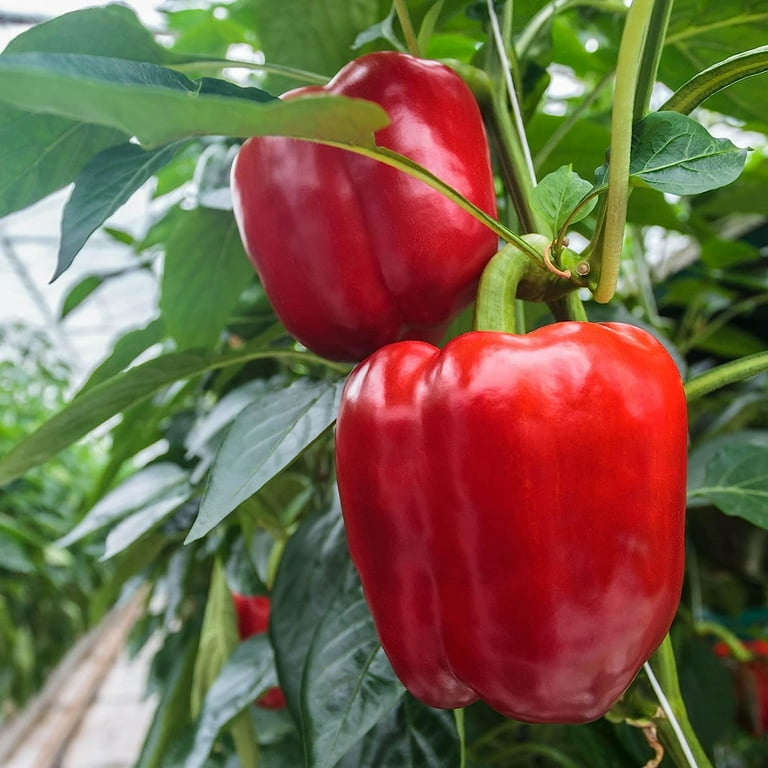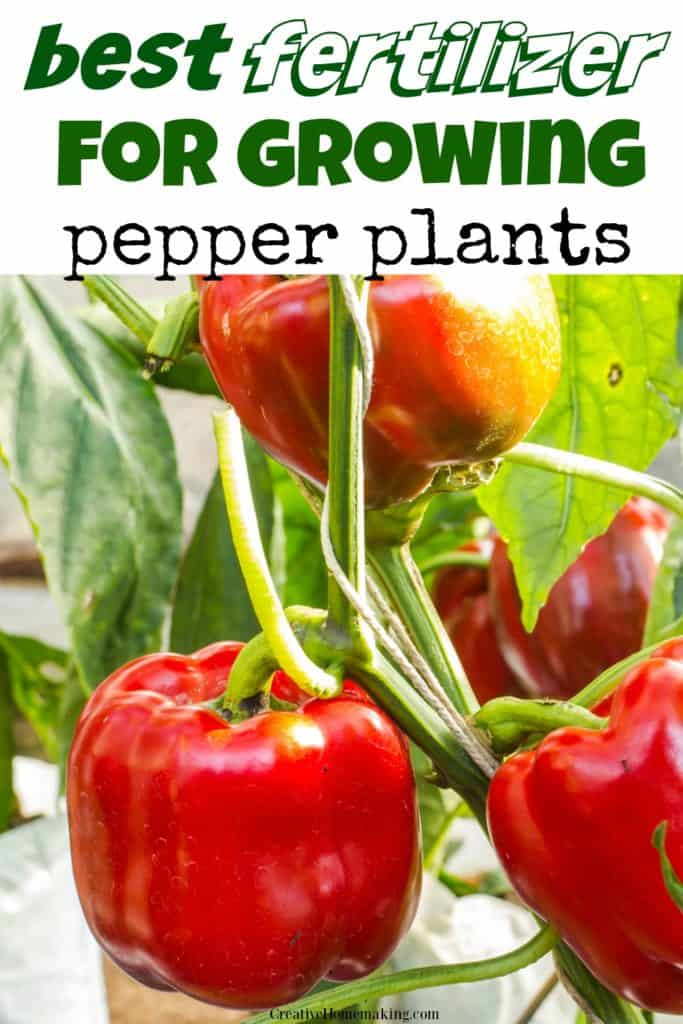Discover the Best Fertilizers for Peppers: Crucial Nutrients for Growing Plants
Wiki Article
Exactly How Plant Foods Play a Critical Function in Growing Healthy and Abundant Pepper Crops
Plant foods offer as the backbone of successful pepper farming, using a calculated method to nourishing the dirt and promoting optimal plant development. The complex dance between essential nutrients and the pepper plants' physical procedures emphasizes the critical role that plant foods play in making certain a plentiful harvest.Importance of Nutrient-Rich Fertilizers
The usage of nutrient-rich fertilizers plays a crucial duty in boosting the efficiency and high quality of pepper crops in modern agricultural practices. Pepper plants need a balanced mix of vital nutrients to thrive and generate high yields of quality fruits. Potassium, nitrogen, and phosphorus are key nutrients that are vital for the growth and growth of pepper plants. Nitrogen aids in leafed eco-friendly development and total plant vitality, phosphorus supports origin advancement and flower production, while potassium adds to illness resistance and fruit quality.Poor levels of these nutrients can cause stunted development, lowered yields, and susceptibility to conditions (best fertilizers for peppers). Nutrient-rich plant foods provide a targeted service to make certain that pepper plants receive the required components for optimal growth and efficiency. Furthermore, these plant foods assist boost soil fertility gradually, creating a lasting setting for lasting pepper cultivation
Enhancing Plant Development and Growth
To optimize plant development and advancement in pepper crops, tactical application of nutrient-rich fertilizers is important. Fertilizers play an essential role in boosting the total health and wellness and performance of pepper plants by giving them with essential nutrients that might be doing not have in the dirt. Nitrogen, potassium, and phosphorus are primary macronutrients needed in huge amounts by peppers for durable development. Nitrogen help in leafy green development and general plant vigor, phosphorus sustains root growth and flower development, while potassium contributes to disease resistance and fruit top quality.In enhancement to these macronutrients, trace elements such as magnesium, zinc, and iron are additionally essential for the proper performance of various plant procedures. Iron, for circumstances, is required for chlorophyll production, which is important for photosynthesis and total plant development. Zinc plays a vital duty in enzyme task and hormone synthesis, impacting plant development and advancement at a cellular level. Magnesium is important for the development of chlorophyll and general energy transfer within the plant.

Boosting Condition Resistance With Fertilizers
By purposefully incorporating targeted plant foods, farmers can bolster the illness resistance of pepper plants, ensuring ideal plant wellness and productivity. Plant foods including necessary nutrients like potassium, phosphorus, and nitrogen play a vital role in strengthening pepper plants' body immune systems, making them more resilient to different illness. Nitrogen, for instance, aids in the production of proteins that are crucial for plant defense reaction. Phosphorus adds to root development, allowing plants to much better soak up nutrients and water, thus improving their ability to repel illness. Potassium manages processes that boost overall plant health, making peppers a lot more robust versus pathogens.
Maximizing Pepper Return With Fertilization
Making use of a balanced fertilization strategy is crucial to accomplishing maximum pepper return and guaranteeing optimal plant efficiency. By offering peppers with the right nutrients at the correct time, farmers can dramatically boost their yield possibility. Potassium, phosphorus, and nitrogen are crucial aspects for pepper development, with nitrogen helping in leaf and stem advancement, phosphorus supporting root growth and blossom formation, and potassium advertising general plant health.To make the most of pepper return, it is important to conduct dirt tests to establish existing nutrition degrees and determine any kind of deficiencies that require to be attended to. Based on these outcomes, farmers can develop a customized fertilization plan that fulfills the particular needs of their pepper content plants. Additionally, appropriate fertilization methods such as split applications throughout the expanding season can make sure continual nutrient schedule for the plants.

Sustainable Fertilizer Practices for Peppers
In considering sustainable fertilizer methods for peppers, it is essential to focus on long-lasting dirt wellness and ecological stewardship combined with optimizing plant performance. Lasting fertilizer practices aim to improve or maintain soil fertility while decreasing unfavorable ecological influences. One essential strategy is the usage of natural plant foods such as garden compost, manure, or cover plants, which not just give essential nutrients to the peppers but also add to soil structure and microbial activity. These organic choices assist develop raw material in the soil, improving its capability to preserve water and nutrients, thus supporting long-term plant wellness and durability.Furthermore, accuracy agriculture methods, such as soil testing and targeted nutrient applications, can aid maximize plant food use, making certain that peppers obtain the nutrients they require without excess drainage right into rivers. This not just benefits the environment by decreasing pollution but additionally conserves prices for farmers by minimizing waste. By taking on sustainable fertilizer techniques, pepper cultivators can secure the health of their plants, dirt, and surrounding ecological communities for future generations.
Final Thought
To conclude, plant foods are important for cultivating abundant and healthy and balanced pepper crops. best fertilizers for peppers. They supply required nutrients for plant development and growth, boost illness resistance, and optimize yield. By implementing lasting fertilizer techniques, farmers can make sure the long-term health and Learn More wellness of their pepper plants and add to a more environmentally-friendly and reliable farming systemThe complex dance between essential nutrients and the pepper plants' physical processes underscores the essential duty that fertilizers play in making sure a bountiful harvest.To maximize plant growth and advancement in pepper plants, calculated application of nutrient-rich fertilizers is vital. Plant foods play a crucial function in enhancing the general health and wellness and performance of pepper plants by providing them with important nutrients that may be doing not have in the dirt.By tactically including targeted plant foods, farmers can bolster the disease resistance of pepper crops, making sure ideal plant wellness and performance. Plant foods containing vital nutrients like nitrogen, phosphorus, and potassium play an important function in enhancing pepper plants' immune systems, making them much more resilient to various diseases.
Report this wiki page